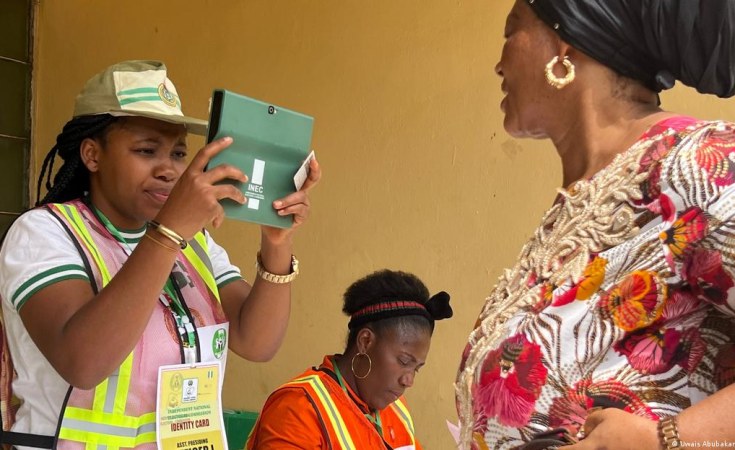Nigeria according to the Inter-Parliamentary Union women in politics report 2022 ranked 184 out of 192 for women's representation in the national parliament.
Several foreign observer groups to Nigeria have lamented the poor participation of women in the ongoing 2023 national elections.
The groups made this known through their various preliminary reports shared with journalists in Abuja on Monday.
The African Union observers led by former Kenyan President Uhuru Kenyatta observed that even though the Nigerian Constitution guarantees equal rights for men and women in political, social and economic life, the electoral system does not seem to encourage affirmative action for women, youth and People with Disabilities.
The group recommended a "multi-stakeholder approach, considering measures for affirmative action in the electoral system for women, people with disabilities and youth. Such measures could include consideration for special seats through a quota system, among others."
While noting the scarcity of female representation in public life, the ECOWAS observer group lead and former president of Sierra Leone, Ernest Bai Koroma called for enhancement of women's participation in the electoral process, including by encouraging champions in the advocacy by "He Party Members" the enhanced and meaningful roles of "She Party Members".
Thabo Mbeki, former South Africa president and head of the commonwealth observers, in his preliminary report, noted there was only one woman presidential candidate out of the total of 18.
He reckoned that this was despite concerted efforts to advance progress in increasing women's political participation as candidates since the 2019 elections, including the tabling of a private member's bill in parliament to promote gender equality, we note that this bill was not passed.
The EU through its chief observer, Barry Andrews, noted that this is a continuing decline since 2010. This underscores a lack of affirmative action at odds with the Convention on the Elimination of all Forms of Discrimination against Women and constitutional guarantees for equality.
He decried the challenges faced by female candidates who dared to try including lack of genuine support from their parties, abuse and intimidation, including online, financial constraints and social resistance.
"Ahead of these elections, at least two women candidates, including one for governor, faced unsuccessful efforts by their parties to exclude them," Mr Andrews remarked.
It also fingered INEC for complicity; "INEC states that over 60 per cent of its staff are women, however, key decision-making posts are overwhelmingly occupied by men. Among 36 RECs only three are women."
"Following contentious candidate registration processes there were 18 contestants for the presidential office and over 4200 for 461 national assembly seats. They were selected in party primaries that reportedly lacked transparency and inclusiveness, marked by very chronically low levels of participation of women and youth," Mr Andrews added.
According to International Republican Institute (IRI) and the National Democratic Institute (NDI), women in Nigeria remain woefully underrepresented at all levels of government and faced both structural and societal barriers to fully and meaningfully participate in the 2023 polls.
Lamenting parties' attitude towards their female candidates, it cited the Allied People's Movement (APM) withdrew its support for its candidature, the only female presidential candidate for the 2023 elections, just a week before the election, endorsing another male presidential candidate.
Nigerian women in politics
Despite being one of the largest economies in Africa, Nigeria is ranked the lowest in Africa for the number of women in political office, which has continued to decline since 2015.
For 2023, women represented less than 10 per cent of presidential and National Assembly candidates, a visible decline from 12 per cent in 2019.
Of the 1,100 senatorial candidates, only 92 are women representing 8.4 per cent; only 286 of 3,114 house of representatives candidates are women representing 9.2 per cent.
For the state house of assembly, of 10,087 candidates, only 1,050 are women representing only nine per cent of the total number.
Nigeria according to the Inter-Parliamentary Union women in politics report 2022 ranked 184 out of 192 for women's representation in the national parliament.
True to this ranking, there are only 21 women in the ninth national assembly out of 469 members. At the sub-national level, data from Invictus Africa show that there are only 45 women out of 990 house of assembly members; 15 of the 36 states have no female members.
In early 2022, Nigeria's women held the mother of all protests urging the National Assembly to sign into law five constitutional reform bills aimed at promoting women's rights and political empowerment; unfortunately, they were all thrown out of the window.


